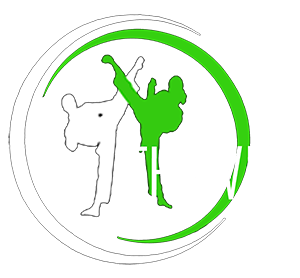Kids Martial Arts Micaflores: A Fun Way to Grow Strong and Confident
Are you looking for kids martial arts in Micaflores? You’ve come to the right place! At Thrive7 Martial Arts, we offer great classes designed just for kids. Martial arts is not just about fighting; it helps children learn important life skills while having fun. Your child will build strength, focus, and confidence in a safe and welcoming environment.
Why Choose Kids Martial Arts?
Kids martial arts classes are perfect for children. Here are some reasons why they are a great choice:
- Build Confidence: As kids learn new skills, they become more confident.
- Improve Focus: Learning martial arts helps kids pay attention and improve their focus.
- Make Friends: They will meet new friends during classes and activities.
- Physical Fitness: Martial arts keeps kids active and healthy.
- Self-Defense: They learn how to defend themselves safely.
- Respect: Kids learn to respect their teachers and classmates.
These skills are important for kids of all ages. Plus, they can have a lot of fun while learning.
What Kids Learn in Martial Arts
In our kids martial arts program, children learn many things. Here are some of the main skills they develop:
- Respect: They learn to respect their instructors and classmates.
- Teamwork: Kids practice working together with others.
- Discipline: They follow rules and routines, which helps them at home and school.
- Self-Control: Kids learn how to control their emotions and actions.
- Goal-Setting: They set goals and work hard to achieve them.
- Self-Defense: They gain skills to protect themselves if needed.
The combination of these skills helps them grow in many areas of life. They’ll carry these lessons with them as they get older.
Classes Available for Kids
At Thrive7, we offer various classes for kids. Here’s a look at what we provide:
- Taekwondo Classes: Great for kids ages 3 and up, these classes teach forms, kicks, and self-defense.
- Kickboxing Lessons: Fun and energetic classes for older kids and teens.
- Private Lessons: One-on-one coaching for personal attention.
- Summer Ninja Camp: A fun summer program filled with activities and martial arts training.
Each class is designed to match the age and skill level of your child. They will learn at their own pace while feeling safe and supported.
Daily Schedule
Here’s a sample of what a daily schedule might look like:
| Time | Activity | Age Group | Description |
|---|---|---|---|
| 4:00 PM | Taekwondo Class | Ages 3-6 | Fun, basic moves and games. |
| 5:00 PM | Kickboxing Class | Ages 7-12 | Learn punches, kicks, and cardio. |
| 6:00 PM | Taekwondo Class | Teens and Adults | Advanced skills and self-defense. |
| 7:00 PM | Private Lessons | All Ages | Focus on individual needs. |
Other Services We Offer
Aside from kids martial arts, we have other great programs. Here are some of the services offered at Thrive7:
- After School Program: A safe place for kids to stay after school while learning martial arts.
Learn more about our After School Program. - Birthday Parties: Fun martial arts birthday parties for kids.
Find out about Kid’s Birthday Parties. - Summer Ninja Camp: A fun-filled summer camp that mixes martial arts with games.
Check out Summer Ninja Camp.
Our goal is to create a fun, safe, and educational environment for all kids.
Benefits of Kids Martial Arts
There are many benefits to enrolling your child in kids martial arts. Here are some key points:
- Better Grades: Kids with good focus do better in school.
- Healthy Lifestyle: Martial arts teaches kids to stay active.
- Social Skills: They learn to interact with others.
- Life Skills: Kids gain skills that will help them in the future.
These benefits can help your child grow into a stronger and more confident person.
Testimonials from Parents
Don’t just take our word for it. Here’s what some parents say about our programs:
- “Thrive7 has made my child more confident. She loves going to class each week!” – The Martinez Family
- “The instructors are wonderful! They teach kids respect and friendship. My son has improved so much.” – The Johnson Family
These stories show how much our martial arts program can help kids.
Enroll Today!
If you want your child to join our kids martial arts classes in Micaflores, sign up today! It’s easy to get started.
- Visit Our Website: Go to Thrive7 Martial Arts.
- Choose a Program: Look at our classes to find the right fit for your child.
- Contact Us: Call or email us to ask any questions.
Your child will love learning martial arts and will gain many skills that last a lifetime.
Conclusion
Kids martial arts in Micaflores offers a fantastic way for children to grow. They will build confidence, learn respect, and stay active. With various classes and fun activities, there’s something for everyone. Join Thrive7 Martial Arts today and watch your child thrive!
If you have questions, feel free to reach out. We’re here to help!

